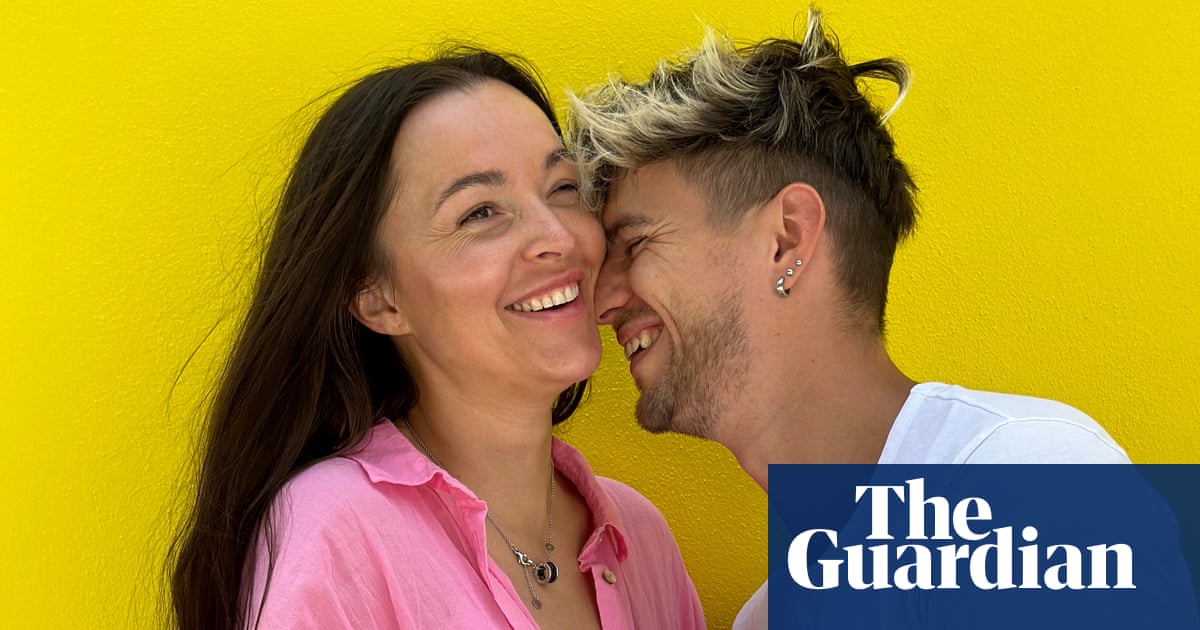
Tony Lloyd, the Labour MP for Rochdale in Greater Manchester, spent 25 days in Manchester Royal Infirmary with Covid-19, including 10 days in an induced coma on a ventilator. He talks to Helen Pidd about the humbling experience, from having strange dreams to how it’s focused his beliefs about the NHS.
I’d been feeling ropey for two weeks when I went into hospital on 2 April, ever since I’d come back up to Manchester from Westminster. I’d woken up really early, about 4am, and I just thought: this isn’t right. I’d perhaps been in denial until then. You know what northerners are like: after 200 years of having manure poured over our heads, we are used to soldiering on.
I phoned 111 and expected to be told: “Don’t worry about it, if it gets worse, give us another ring.” But they said they were going to send an ambulance. I had all the symptoms: I was running a high temperature, my breathing was challenging. I’d been ill for that long and wasn’t getting better. I think I was relieved to be taken seriously. There’s a credibility thing. You don’t want to ring up and someone says you’re acting daft, you’ve just got an ingrowing toenail or whatever.
It is quite difficult to remember what happened next. Accessing these memories is hard; it’s like they are in another place. But I do know that an ambulance turned up at my house and whisked me away to the Manchester Royal Infirmary. I could still walk 30 yards to the ambulance. I didn’t need a stretcher: back then I was probably 10 times stronger than I am today.
I was on my own that night and no one knew I had been taken to hospital. It was so early I didn’t want to wake anyone up and so when my daughters couldn’t get hold of me that morning they started to worry. They told me later that they came round to my house to look for me and when I wasn’t there, they phoned around all the hospitals in Manchester to try to find me. By the time they tracked me down I was still in A&E, waiting for a bed.
After I tested positive I was moved on to the Covid ward. I was having problems breathing so they had me wearing a pressurised hood, a sort of tent over my head to push oxygen into me. After two days my temperature was still high – it was nearly 40C at one point – so I was moved to the intensive care unit (ICU).
That’s when the doctor told me they were going to put me in an induced coma. I can’t remember it, but I must have been conscious then, because I did manage to ring Angharad, the eldest of my four children, and tell her what was happening. I’d named her my “designated person”, the designated busybody who would phone up and talk to the doctors. She’s since said it was one of the worst conversations she has ever had.
Apparently I sounded very faint and weak and said that I just felt so tired and that I was going on a ventilator. It was my youngest daughter’s birthday that day and she says I kept asking if she and everyone else in the family was OK.
One of the consultants said to me later, when I was semi-compos mentis, that he selects the people he puts on ventilators according to who he felt was a good risk. There’s got to be a medical judgment as to whether the patient can come through the quite brutal experience of being intubated and kept alive. I was one of the lucky ones. I had no underlying health conditions and was reasonably fit. I had been running on a treadmill a couple of weeks beforehand. I never considered myself high risk, even though I had turned 70 in February.
I was on a ventilator for 10 days and in ICU for 19 days in total. All I can remember from that period is wild dreams. There was one when I was stuck on a constant loop on the Manchester to Paris train. The good thing about my dreams is that they offer a better train service than this government. I was desperate to get off the train but I couldn’t. I knew it wasn’t where I ought to be, I was trapped. The doctors told me later this is quite normal. It’s a trauma thing.
Angharad has filled in the blanks of what happened while I was unconscious. Apparently after a week on the ventilator the doctors were getting ready to wean me off when I came down with a chest infection and my temperature shot back up. It’s always a risk in hospital when they are putting tubes into you. They were about to do a tracheostomy, where they make a hole in the neck in order to place a tube into your windpipe, when there was some sort of delay, thankfully. By the time the surgeon was ready I had got better, so they didn’t do the procedure.
Even when they started to wake me up, I wasn’t behaving normally. I think I was looking at some of the medical staff like they were the Stasi. Angharad says I rang up at one point and told her they were holding me against my will. I remember at one point getting quite distressed because I thought they’d put wooden pegs in my mouth. They had, sort of: these were real and necessary clips to secure the breathing tubes.
The day after I was put on a ventilator, Boris Johnson was admitted to hospital in London, I later learned. He said something when he came out that I relate to, when he praised the people who cared for him. The professionalism is extraordinary but it’s the humanity of it, the 150,000 small human gestures every hour that makes the NHS a human institution.
When I was moved out of ICU I watched a guy across from me who couldn’t feed himself. Every mealtime, a nurse took time to sit with him and gently feed him. I watched young women cleaning old men and that’s what they did because they care, not because there’s an enormous pot of gold for them at their end of their double shift.
There was this particular nurse who walked me to the door when I was discharged. She supported me because I was unsteady and as I went off she clapped me. It’s tremendous, really, because it’s her and people like her who had done the work, not me.
Many of the doctors and nurses were not British-born, which is something we should all reflect on. That will remain the case and Priti Patel as home secretary has got to work out how we staff our NHS in the future. If we are not going to employ these people, there is no future for our NHS.
It’s the first time I’ve really been a user of the NHS. I had a minor operation years back but other than that I haven’t needed to use a hospital. Seeing it close up, it should make us all say: this is something that is so valuable, so worth fighting for and never again can we have a decade of underfunding where we end up without the ventilators, without the doctors and nurses.
How can it be that we haven’t got enough personal protective equipment (PPE)? How can it be a matter of random luck as to whether the people looking after your mum in a care home are protected? We have to learn the lessons from all of that.
I was watching something about a nurse who died in Harrogate and she had said to her family that the PPE wasn’t all it should be. But she went to work and people like her saved my life. So I am bound to feel a tremendous sense of humility.
It isn’t about two nurses working 48 hours by the prime minister’s bedside, it’s about dozens and dozens of amazing people who are amazing every day, who take it for granted that’s what they do. That’s why the NHS is beyond extraordinary. Maybe good old Captain Tom has tapped into something where people will begin to realise that there is more to life than the next parcel from Amazon. It’s what binds us as a human family really. That enormous decency.
I was discharged from hospital on Monday and on Tuesday I resigned as shadow Northern Ireland secretary, a post I have held for two years. I plan to stay on as an MP – I am not going to renege on my commitment to serve the people of Rochdale – but at the moment the priority for me is rebuilding my health and not being on the frontbench.
I’m staying with family in Manchester now. I couldn’t possibly live independently at this stage. The things that you and I would find just routine in life cost me a lot of effort. Just having a shower feels like doing three days’ work.
I don’t know what the long-term effects might be, but the doctors told me to expect my cough to linger. Not working is new for me: Angharad will tell you that in the days of landlines I was constantly on the phone at home and would only take the phone off the hook while we were having Christmas dinner.
I don’t know if it’s changed me. Ask most Labour people if they like the NHS and they will say, yes, it’s the thing of which we are most proud. But what this has done is translate for me a principle — believing in free public health at the point of use — into something that’s about the people I saw delivering that healthcare and the patients whose journeys I shared.
What it’s done is focused rather than changed what I see – particularly my long-term belief that our society is disordered. If this pandemic doesn’t make us rethink what kind of world we want to live in then I’m not sure what will. We will have to use this experience as the anvil on which we beat out this new world.
This is not just about fair pay, but actually how we value different things in society. Looking back, how could any government have underfunded the NHS for 10 years? Ask the public today who is in favour of that and, apart from George Osborne, no one would put their hand up. Even Boris Johnson doesn’t think that now. In that sense it really is about saying we need a different evaluation of things, a different order of things.
This isn’t being romantic or naive. Most of us know that from time to time you might need these services. But now we have seen a society laid out in front of us that is in distress and things are not going right, and it will be some time until it begins to go right. We have to begin to use the resources of our society for all of us, not just some of us.












